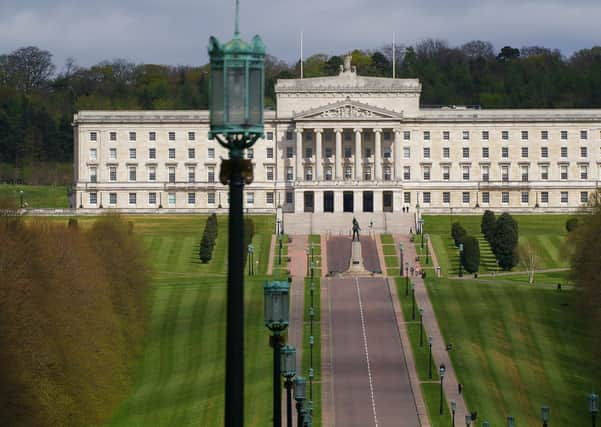Thinktank says progress made but challenges remain for Stormont Executive in 2021


The Northern Ireland Assembly returned in January 2020 after three years of suspension.
However, within weeks the Executive was plunged into the challenge of dealing with the coronavirus pandemic and the first lockdown in March.
Advertisement
Hide AdAdvertisement
Hide AdOne year on, a report from the thinktank Pivotal found that despite this progress was made.
But it also concludes that ministers from the five parties must work together to address long-term issues
The report has challenged the Executive to urgently agree a multi-year programme for government and give priority to health service reform, tackling low skills and climate change.
The power sharing institutions were resurrected following the New Decade New Approach deal, which was announced by then Northern Ireland Secretary Julian Smith and Irish Foreign Affairs Minister Simon Coveney on January 9 2020.
Advertisement
Hide AdAdvertisement
Hide Ad“New Decade New Approach – one year on”, found that the Executive’s ability to work together wavered throughout 2020.
It said a failure to provide leadership and a united front in the middle of the health crisis represented a “grave failure of governance”.
Ann Watt, director of Pivotal, said a culture change is necessary.
“Northern Ireland needs a government focused on tackling our persistent, long-term problems in health, education and the economy,” she said.
Advertisement
Hide AdAdvertisement
Hide Ad“To do that, the Executive needs to work with a genuine sense of partnership and common purpose.
“This has been lacking – a culture change is necessary.”
She said the New Decade New Approach deal had set out a “welcome agenda for investment and reform in public services”, but that relations between ministers fell apart.
This came after the attendance of Sinn Fein ministers at the funeral of leading republican Bobby Storey in June.
“Given the level of ambition in NDNA, it was crucial for the Executive to prove it could work together for the benefit of everyone in Northern Ireland,” she said.
Advertisement
Hide AdAdvertisement
Hide Ad“In the early months of the pandemic, this appeared to be the case. The daily press conferences from the First Minister and Deputy First Minister provided a regular stream of information, crucial during such difficult times, as well as a sense of collective responsibility and accountability.
“However, from June onwards cracks began to show. The daily conferences were abandoned after the Deputy First Minister’s attendance at a prominent republican funeral. Covid rates rose and, in November, a renewed set of measures to reduce infection rates was blocked by the use of a cross-community mechanism.
“This was the old misuse of power, falling down along old factional lines, all in the middle of the biggest global health crisis in a century.”
Ms Watt said the new year gives the Executive a “fresh chance to function better”.
Advertisement
Hide AdAdvertisement
Hide Ad“Covid-19 is far from over – but the development of vaccines means the end is in sight,” she said.
“All the parties now need to agree a path to navigate Northern Ireland through the rest of pandemic while also showing more progress on other areas of policy where there are significant problems.”
She called for agreement around funding, dealing with New Decade New Approach commitments and a programme for government.
“Transformation of health and social care, improving skills in the workforce, and making Northern Ireland a leader in climate reform are all priorities – all of which should be underpinned, as quickly as possible, by a programme for government,” she said.